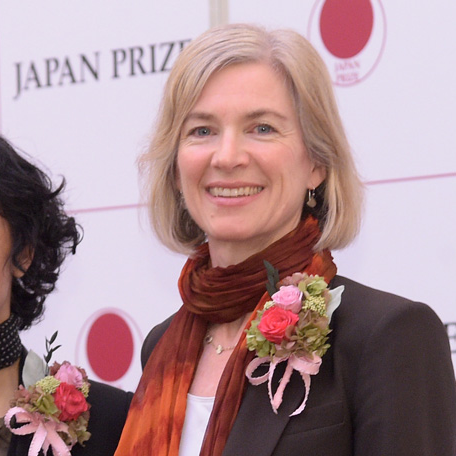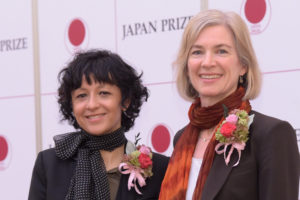Jennifer Doudna and Emmanuelle Charpentier were awarded the 2017 Japan Prize in a press conference on February 2 by the Japan Prize Foundation, in Tokyo, for their roles in the development of the CRISPR-Cas9 gene-editing system, a revolutionary tool that promises cures for many heritable diseases. The Japan Prize is awarded annually to scientists and engineers from around the world who have made significant contributions to the advancement of science and technology, thereby furthering the cause of peace and prosperity of mankind.
According to the Foundation’s press release, Doudna, faculty scientist in the Molecular Biophysics & Integrated Bioimaging Division, UC Berkeley professor of chemistry and of molecular and cell biology, and Howard Hughes Medical Institute investigator; and Charpentier of the Max Planck Institute in Berlin were honored “for deciphering the molecular details of the type II bacterial immune system CRISPR (Clustered Regularly Interspaced Short Palindromic Repeats)-Cas and the creation of the CRISPR-Cas9 genome editing system, a truly revolutionary technique in genetic engineering, far more economical and faster than those previously available.”
Each year two fields of scientific endeavor are honored by the Foundation; Adi Shamir, of the Weizman Institute of Science, was recognized for his significant contributions to the fields of cryptography and computer science. The tree “Trailblazers in Life Science and Cryptography” will be honored in an award ceremony on April 19 in Tokyo hosted by the Japan Prize Foundation. They will each receive a certificate of recognition, a commemorative gold medal, and a cash award of 50 million Japanese yen (approximately US $420,000). Read more at UC Berkeley News.





